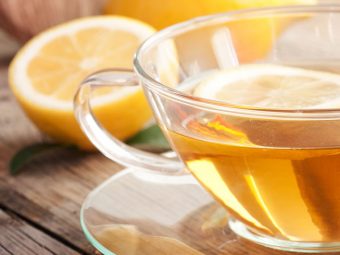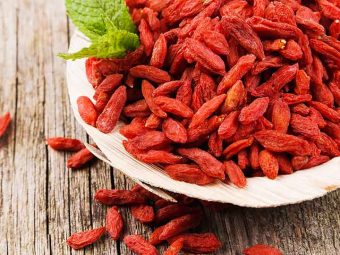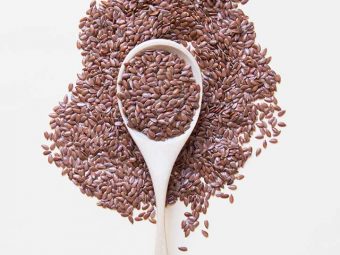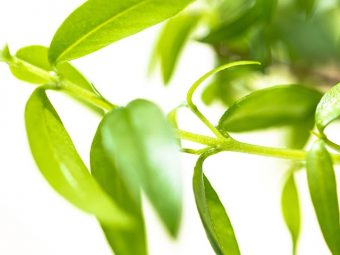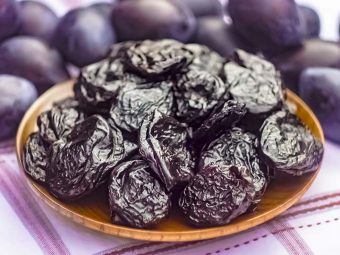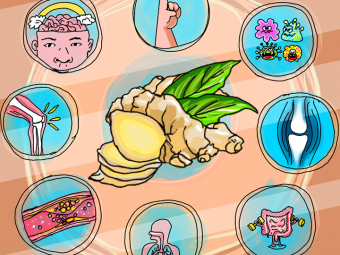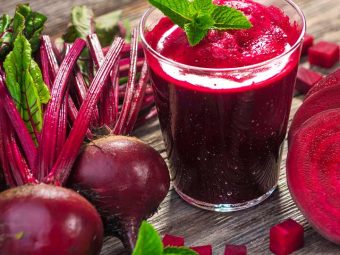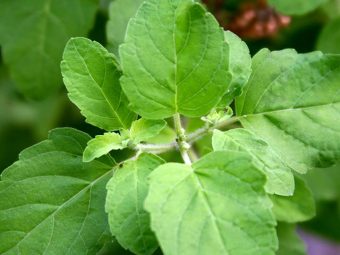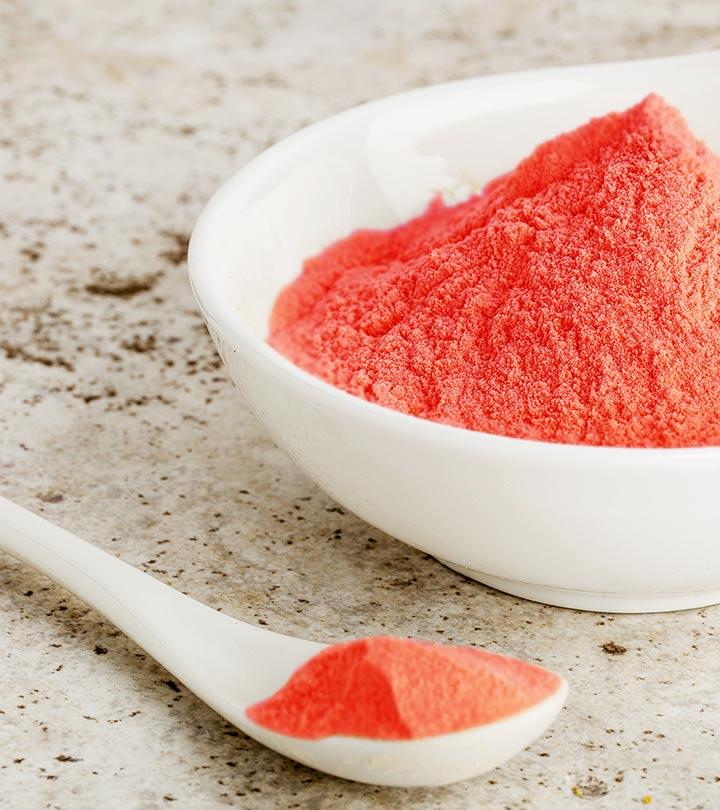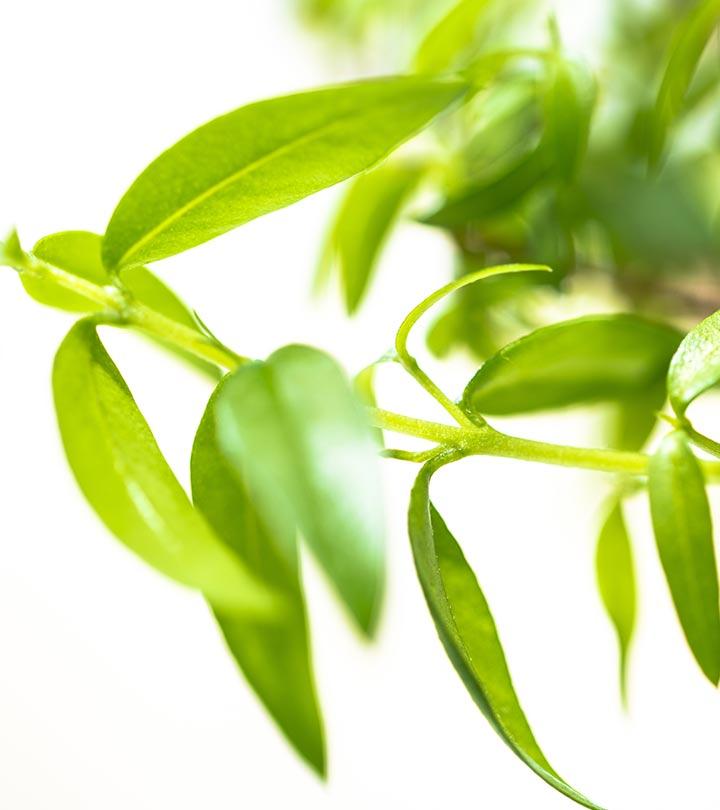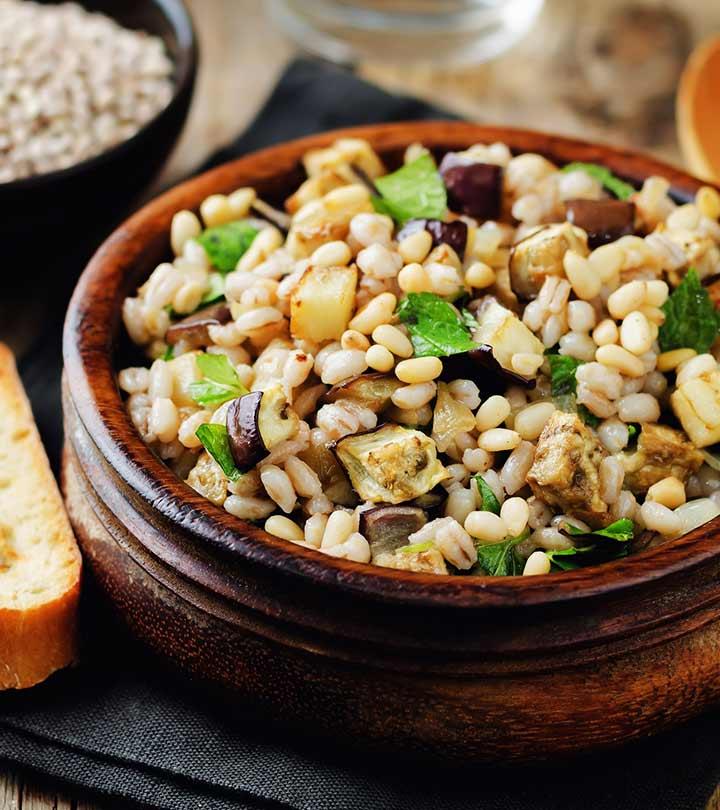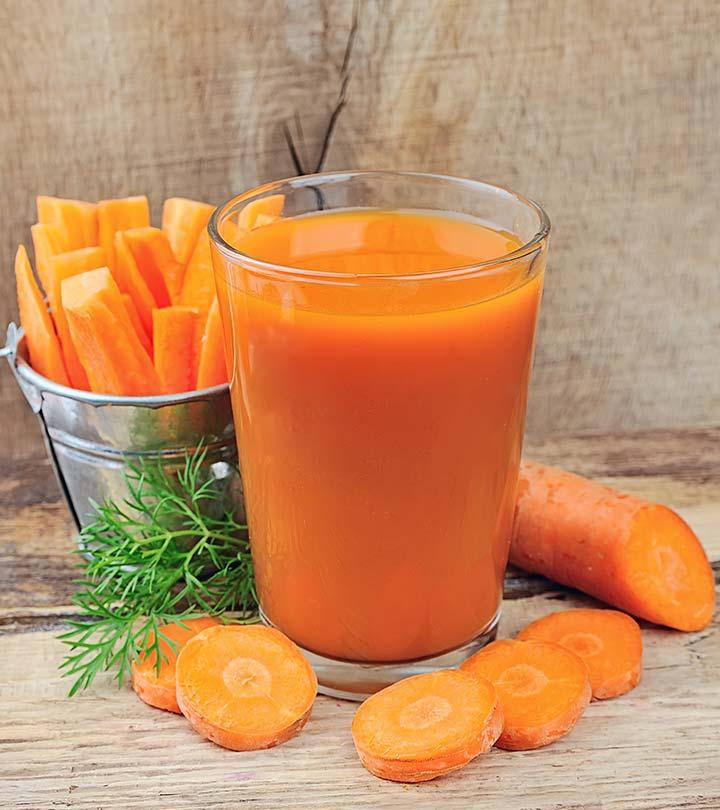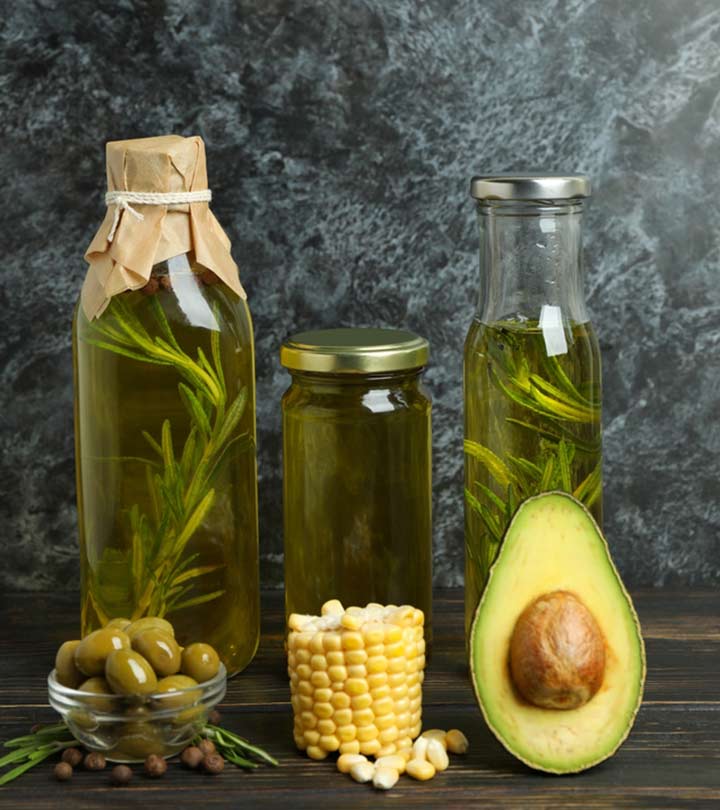7 Benefits Of Lemon Balm, Dosage, And Side Effects
Indulge in nature's zesty and citrusy secret while unlocking the refreshing power of lemon balm.

Image: Shutterstock
The lemon balm plant is a member of the mint family and is popular for its refreshing and mild fragrance. There are many benefits of lemon balm. It rejuvenates the senses and uplifts the mood. Lemon balm also offers other health benefits and is a part of traditional medicine. It is used in beverages as a flavoring agent and can be grown easily at home. Keep reading to know more about the health benefits of lemon balm, how to use it, and its risks.
In This Article
What Is Lemon Balm?
Lemon balm is a perennial herb belonging to the mint family. It has a sweet and refreshing lemony fragrance. Lemon balm is available in multiple forms like essential oil, syrups, dried leaves, and tinctures. It has a unique chemical composition. What is it about lemon balm that makes it well suited for overall consumption?
The Composition Of Lemon Balm
The health benefits of lemon balm are attributed to its chemical composition and the different phytochemicals. The dried lemon balm leaves contain (1):
- Essential oil: 0.32%, of which citral (neral and geranial) is 0.13%
- Polyphenols: 8%
- Hydroxycinnamic compounds: 3% (of which rosmarinic acid is 4.1%)
- Flavonoids: 5%
Compared to dried leaves, lemon balm tea contains higher amounts of citral (74%), essential oil (10mg/l), and polyphenols (1.07 g/l).
All these phytochemicals and flavonoids make lemon balm an effective antimicrobial, antiviral, antioxidative, and anti-inflammatory agent. It also exhibits anti-diabetic effects (2). The next section discusses the benefits of lemon balm in detail.
7 Benefits of Lemon Balm
1. May Improve Digestion
Lemon balm is widely used in Iranian folk medicine for its digestive benefits. It is also said to have an antispasmodic effect and reduce muscle spasms. In addition, lemon balm has a diuretic effect and may help minimize gastrointestinal issues (3).
2. May Reduce Anxiety
Lemon balm has psychoneurological and anxiolytic effects, i.e., it can improve cognition and enhance mood by reducing stress and anxiety. Lemon balm tea can calm the nerves and is often used for treating depression and sleeping disorders. It can also reduce irritability and nervousness (4).
3. May Have Antiviral Properties
The dried extracts of lemon balm leaves have antiviral properties and are effective against the herpes simplex virus. However, it is effective at the early stages of the infection and may relieve early symptoms like tingling, itching, burning sensations, and dryness (3).
 Quick Tip
Quick Tip4. May Help With Alzheimer’s Disease
Lemon balm extract has memory-improving properties and may help promote cognitive ability in people with Alzheimer’s disease and dementia. A small trial showed that lemon balm could help manage mild to moderate Alzheimer’s disease and dementia (5), (6).
5. May Relieve PMS Symptoms
Lemon balm extracts contain caffeic and rosmaric acids, which have a calming and sedative effect on the body. Taking lemon balm capsules (total 1200 mg) daily from the first day to the last day of the menstrual cycle can relieve PMS symptoms, including depression, anxiety, stress, and sleep disorder (7).
6. May Reduce Oxidative Stress
The antioxidants in lemon balm extract reduce oxidative stress in your body. Oxidative stress can lower metabolism, cause DNA damage, inflammation and lead to various health conditions like diabetes, cardiovascular issues, and neurodegenerative disorders like Alzheimer’s and Parkinson’s diseases. This may also lead to the breakdown of the said body parts (3).
7. May Help Alleviate Toothache
The use of lemon balm is found in traditional medicine in high altitude regions by native peoples for a long time. One of its traditional uses includes reducing toothache and relieving the discomfort associated with it. Its anti-inflammatory, sedative, and relaxing properties may be the reason it is a popular home remedy to soothe the gums. The convenient way to try this method out is to dilute lemon balm essential oil with a carrier oil and use a cotton swab to apply in the affected area. Anecdotal claims suggest applying it 3-4 times a day on the affected area may provide relief.
Apart from these benefits, lemon balm adds a lemony-sweet flavor to your drinks. Here is an easy way to consume lemon balm.
How To Prepare Lemon Balm Tea
You Will Need (Serves 1)
- 1½ teaspoons of dried lemon balm leaves
- 1 cup of boiling water
- 1 teaspoon of honey (optional)
- A pinch of cinnamon (optional)
Method
- Steep lemon balm leaves in hot water for 3 minutes.
- Add honey and cinnamon and strain the tea.
You can powder the dried lemon balm leaves and add them to cake batter, frosting, soups, and salads. However, be careful about the amount you consume.
In a study on the impact of herbal infusions (including lemon balm) on health, ten human trials with 560 participants revealed positive effects. Consuming 1-3 cups daily with infusion rates up to 15 minutes showed potential benefits in sleep quality and glycaemic control, osteoarthritic stiffness and hormone control, oxidative stress, and primary dysmenorrhea.
How Much Lemon Balm Is Too Much?
Oral dosage of 300 mg to 1200 mg or 60 drops (liquid extract) has been clinically studied to have beneficial effects (6), ( 7), (8). Consult a doctor to know the correct dosage. The amount of lemon balm that is safe to consume varies from person to person. Lemon balm can be toxic if taken in large quantities. If you are taking any medication, consult your doctor before adding this herb to your regimen.
What Are The Risks Involved?
Lemon balm extracts are safe in medicinal amounts. However, mice studies suggest that it may cause acute oral toxicity, liver, and kidney issues (9 ). Excess consumption of lemon balm may also cause:
- Headache
- Nausea
- Bloating
- Gas
- Regurgitation/acid reflux/ vomiting
- Indigestion
- Dizziness
- Anxiety
- Painful urination
- Stomach pain
Topical application of lemon balm may also trigger an allergic reaction and cause rashes, hives, and irritation (10).
Lemon balm may interact with drugs (11). Talk to your doctor before consuming lemon balm extract if you:
- Take barbiturates and sedatives
- Are on glaucoma medications
- Are on blood thinners
- Are on thyroid medications
- Are pregnant or lactating
- Want to give it to infants and kids
Lemon balm is easy to grow and can be a part of your kitchen garden. Keep reading to find out how!
Growing Lemon Balm At Home
Lemon balm needs direct sunlight can grow in well-drained soil. The seeds take about 14 days to germinate. They bloom throughout the summer until the beginning of fall. Plant it in the early spring and watch it grow into a beautiful, refreshing herb.
 Quick Tip
Quick TipTo Conclude
Lemon balm is a refreshing herb that has multiple health and cognitive benefits. It reduces stress and anxiety, improves mood, and decreases inflammation in your body to protect against diseases. You can grow it easily in your backyard and kitchen garden. However, be careful about the dosage, especially if you have an underlying condition, and take certain medications. Always consult a doctor to avoid side effects.
Frequently Asked Questions
Can you take lemon balm every day?
Yes, but in moderation. You can take lemon balm via supplements, tea, or liquid extracts.
Does lemon balm raise blood pressure?
No. While anecdotal evidence suggests that it may lower blood pressure, scientific studies show no statistically significant results (12).
Does lemon balm tea help lose weight?
Maybe. Researchers found that lemon balm reduced weight gain and enhanced insulin sensitivity in obese mice (13).
Key Takeaways
- Lemon balm has anti-diabetic potential and possesses antioxidant, anti-inflammatory, antimicrobial, and antiviral properties.
- Its anxiolytic effects may help lift mood by treating anxiety, stress, or depression.
- Lemon balm extracts improve memory besides enhancing cognitive ability among those with Alzheimer’s and dementia.
Delve into the myriad benefits of lemon balm. Learn how it alleviates stress, helps with insomnia, and heals cold sores. Learn how to incorporate it into your diet as well. Watch this video now!
References
Articles on StyleCraze are backed by verified information from peer-reviewed and academic research papers, reputed organizations, research institutions, and medical associations to ensure accuracy and relevance. Read our editorial policy to learn more.
- The aromatic and polyphenolic composition of lemon balm (Melissa officinalis L. subsp. officinalis) tea
https://www.sciencedirect.com/science/article/abs/pii/S0031686597000265 - Chemical composition and antimicrobial activity of the essential oil from leaves of Algerian Melissa officinalis L.
https://www.ncbi.nlm.nih.gov/labs/pmc/articles/PMC4464394/ - Melissa officinalis L: A Review Study With an Antioxidant Prospective
https://www.ncbi.nlm.nih.gov/labs/pmc/articles/PMC5871149/ - LEMON BALM (MELISSA OFFICINALIS L.) AN HERBAL MEDICINAL PLANT WITH BROAD THERAPEUTIC USES AND CULTIVATION PRACTICES: A REVIEW
https://www.researchgate.net/publication/285581177_LEMON_BALM_MELISSA_OFFICINALIS_L_AN_HERBAL_MEDICINAL_PLANT_WITH_BROAD_THERAPEUTIC_USES_AND_CULTIVATION_PRACTICES_A_REVIEW - Medicinal plants and Alzheimer\’s disease: Integrating ethnobotanical and contemporary scientific evidence
https://pubmed.ncbi.nlm.nih.gov/9884179/ - Melissa officinalis extract in the treatment of patients with mild to moderate Alzheimer’s disease: a double blind randomised placebo controlled trial
http://dx.doi.org/10.1136/jnnp.74.7.863 - Effect of Melissa officinalis Capsule on the Intensity of Premenstrual Syndrome Symptoms in High School Girl Students
https://www.ncbi.nlm.nih.gov/pmc/articles/PMC4557408/ - Pilot trial of Melissa officinalis L. leaf extract in the treatment of volunteers suffering from mild-to-moderate anxiety disorders and sleep disturbances
https://www.ncbi.nlm.nih.gov/labs/pmc/articles/PMC3230760/ - Toxic essential oils part VI: Acute oral toxicity of lemon balm (Melissa officinalis L.) essential oil in BALB/c mice
https://pubmed.ncbi.nlm.nih.gov/31473339/ - Lemon balm (Melissa officinalis L.): an evidence-based systematic review by the Natural Standard Research Collaboration
https://www.researchgate.net/publication/7144806_Lemon_balm_Melissa_officinalis_L_an_evidence-based_systematic_review_by_the_Natural_Standard_Research_Collaboration - Herb–drug interactions: an overview of systematic reviews
https://doi.org/10.1111/j.1365-2125.2012.04350.x - Evaluation of Melissa officinalis (Lemon Balm) Effects on Heart Electrical System
https://www.ncbi.nlm.nih.gov/pmc/articles/PMC4576163/ - Lemon Balm Extract ALS-L1023 Regulates Obesity and Improves Insulin Sensitivity via Activation of Hepatic PPARα in High-Fat Diet-Fed Obese C57BL/6J Mice
https://www.ncbi.nlm.nih.gov/pmc/articles/PMC7352304/










